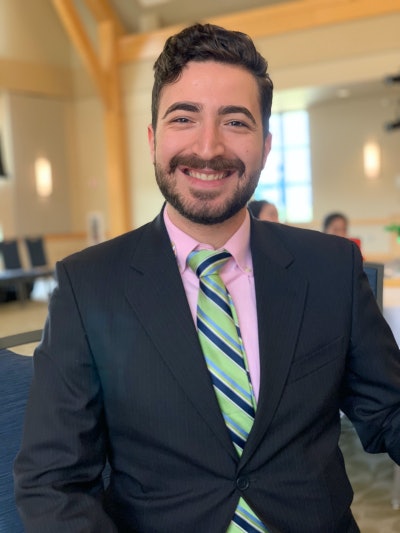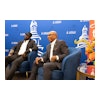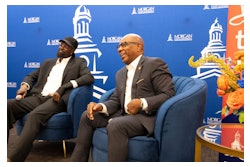As an international student during the 2016 presidential election, I had very little idea what was happening in the year that preceded it, but it all sounded too complicated. Electoral votes, caucuses, nomination, national conventions, all were foreign concepts to me. And I vividly remember Election night. I stayed up all night with a group of friends with all sorts of backgrounds and experiences processing the outcome and what it might mean to us. Emotions were heightened, many were crying. Boy, was that a night!
After being in the U.S. for several years now, I am much more familiar with the election process, and have come to have and express my own opinions about U.S. politics. I may not be able to vote, but I can still engage in conversations, especially since the leader of the United States come 2020 will affect my home country and, more directly, my status as an international student.
 Musbah Shaheen
Musbah ShaheenThe political atmosphere here was unfamiliar and overwhelming. From an international lens, the consequences of “politics” can look very different on the other side of a border. Engagement in opinion sharing and political activity might be the norm for some international students, but it could also be culturally taboo for others or, in extreme cases, grounds for a death sentence. Using myself and Syria as an example: we have had the same president for 20 years. I know people who were taken by the government because of alleged political action, something that I learned was not a standard practice in the U.S.
As a system outsider, I can share that the U.S. elections have become more than just choosing a president and endorsing their policies. Elections have become indicators of the moral values of the country and a representation of its citizenry to the whole world. Voting for a candidate could mean voting against the interests of substantial groups of people, and for the interests of others. I have written before about being dismissed as foreign when trying to argue politics even though said politics affect me substantially. My college experience was a missed opportunity for political engagement from a unique lens.
Offices of international affairs across the country are likely holding their breath for the results of the election which might change so many of the policies and rules related to international students. The recent changes to the SEVIS system are only the beginning. If Trump were to be re-elected, the is a high chance that the presence and movement of internationals in the U.S. will be drastically limited.
And yet, there is so much more to the international student experience than immigration policies. This is an opportunity to invite international students to express their thoughts and opinions, and to become more informed about the political climate that directly affects them. Institutions could host informational sessions about the elections and feature experts on the topic who can break down some taken for granted norms in U.S. politics. Further, comparisons between the U.S. and other democratic nations is fruitful for expanding domestic students’ understanding of how the U.S. compares to other countries, and for providing an inviting atmosphere for internationals to share about their experiences. Follow ups to the election results are also necessary for international students to process what the results mean for them and their experience.
Just because I can’t vote does not mean you can’t engage me in the political life of the United States. College campuses are centers of scholarly and cultural exchange that must nurture the civic orientations of international students alongside domestic students to effectively set the stage for their participation as global citizens. Colleges can show that they are invested in their international students for more than their money, food, and fashion by capitalizing on opportunities to bring their political perspectives to the table and fostering rich socio-political discourse for everyone.
Musbah Shaheen is a graduate student and research associate at The Ohio State University.


















